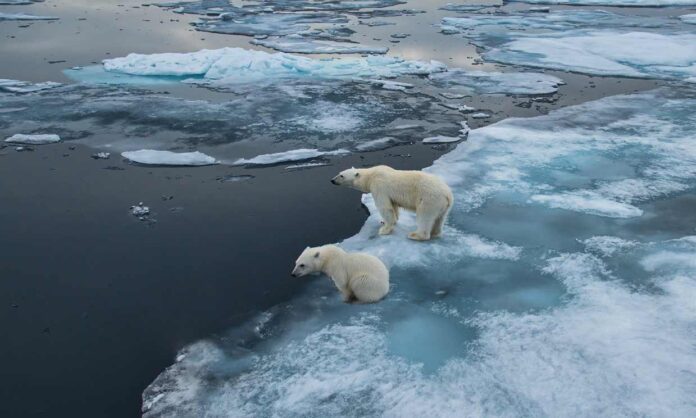A German research ship has returned after completing the largest scientific Arctic expedition in history.
The RV Polarstern docked at the port of Bremerhaven, on the North Sea coast, after spending a year drifting through sea ice in the polar north.
The aim of the mission was to gather data on the impact of climate change in the region.
Professor Markus Rex, the expedition leader, warned that “we are watching the Arctic sea ice die” and that soon there may not be any summer sea ice left, which could have a big impact on climate around the world.
He said: “The region is at risk. We were able to witness how the ice disappears and in areas where there should have been ice that was many metres thick, and even at the North Pole – that ice was gone.
“We need to do everything to preserve it for future generations.”
Professor Rex said that a “trove of data” was collected which will help make predictions for the future and improve understanding of global warming, especially in the Arctic, where the pace of change is faster than anywhere else.
The expedition, organised by the German Alfred Wegener Institute, involved more than 300 scientists from 20 countries, including the UK, the US, France, Russia and China, and cost £153m.
The team achieved everything they set out to do and took measurements over the course of a year with “just a short break”.
In May, the ship had to break away from its position to collect supplies and rotate the scientists on board.
Although the coronavirus pandemic disrupted travel plans during this period, there were no significant problems posed to the research.
The Polarstern was anchored to a large sheet of floating ice last autumn, and a small scientific village, protected from polar bears, was set up.
Melinda Webster, an assistant professor at the University of Alaska, said “we went above and beyond the data collection we set out to do”, adding that it could take years, or even decades, to go through it all.
She added: “This is an extremely exciting time to get into Arctic science because of the changes that are happening.
“We need to get all the help we can because it’s important to understand what’s going on and the more people help out, the better.”
PLEASE SUPPORT US FOR JUST £2 A MONTH







